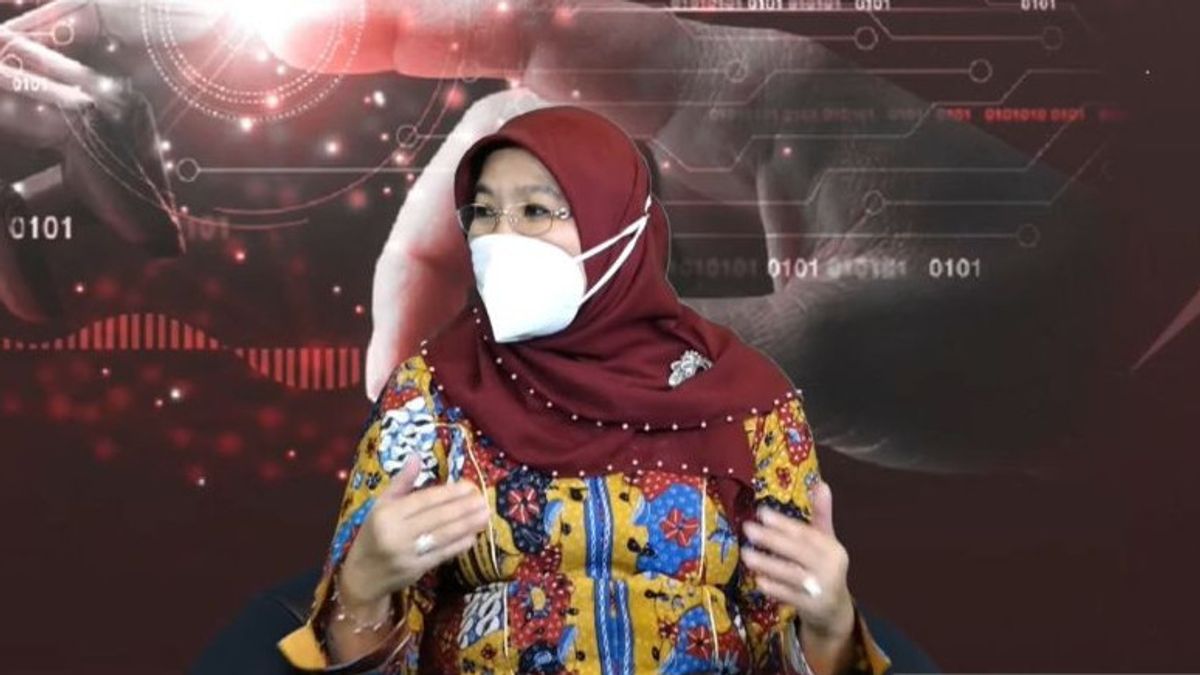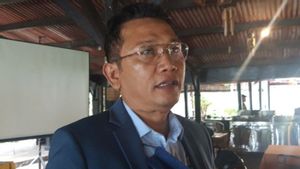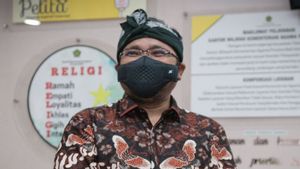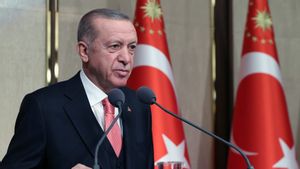JAKARTA - Spokesperson for the COVID-19 Vaccination of the Ministry of Health (Kemenkes) Dr. Siti Nadia Tarmizi, emphasized that the government has never played around in making policies that can save the lives of patients who are positively infected with COVID-19.
“One life is precious. Even if we count, even though Omicron's death rate is much lower, we should still be able to save even one life," he said at the 2022 DBS Asian Insights Conference: Towards a Revolutionary Future Press Conference which was followed online in Jakarta, reported by Antara, Thursday, 24 February.
He said if you look at the records on the death rate, the highest number of deaths caused by Omicron was 180 cases, much lower than deaths due to the Delta variant which touched 2,500 cases per day.
Even though the death rate has fallen quite a lot, he said, the government continues to try to improve the handling of the COVID-19 pandemic, starting from preparing policies that can reduce the rate of infection cases, expanding vaccinations, and preparing health workers and facilities.
This includes, he said, starting to strengthen early detection through case tracking activities, implementing Community Activity Restrictions (PPKM) level to conducting isolation and quarantine.
In order to provide good health services to the community, he said, the government should not allow the number of cases to increase in large numbers. So that the lives of infected patients or vulnerable groups can be saved.
"Including health protocols, we continue to encourage so that the burden of needing treatment is not too large. If it is large, surely health facilities cannot provide optimal services," he said.
SEE ALSO:
He also said the government had reflected on the experience of the second wave of the Delta variant in June-July 2021, where many people had difficulty accessing hospital services and did not receive treatment.
Therefore, the government has begun to strengthen telemedicine services, increase the number of ventilators, oxygen capacity, and even new drugs needed by patients such as Molnuvirapir. The government will also provide the drug Paxlovid which is planned to be made available in March 2022.
He hopes that with a number of efforts and policies that have been built, it can be interpreted as a risk communication that can strengthen public understanding of the conditions of the COVID-19 pandemic in Indonesia.
"We can't 'zero out' COVID-19. But how are vigilance, prevention efforts, the readiness of health facilities and services built. People also know when to put the brakes on themselves, if later we live in peace with covid, this is what we are pioneering to get there," said Siti Nadia Tarmizi.
The English, Chinese, Japanese, Arabic, and French versions are automatically generated by the AI. So there may still be inaccuracies in translating, please always see Indonesian as our main language. (system supported by DigitalSiber.id)
















